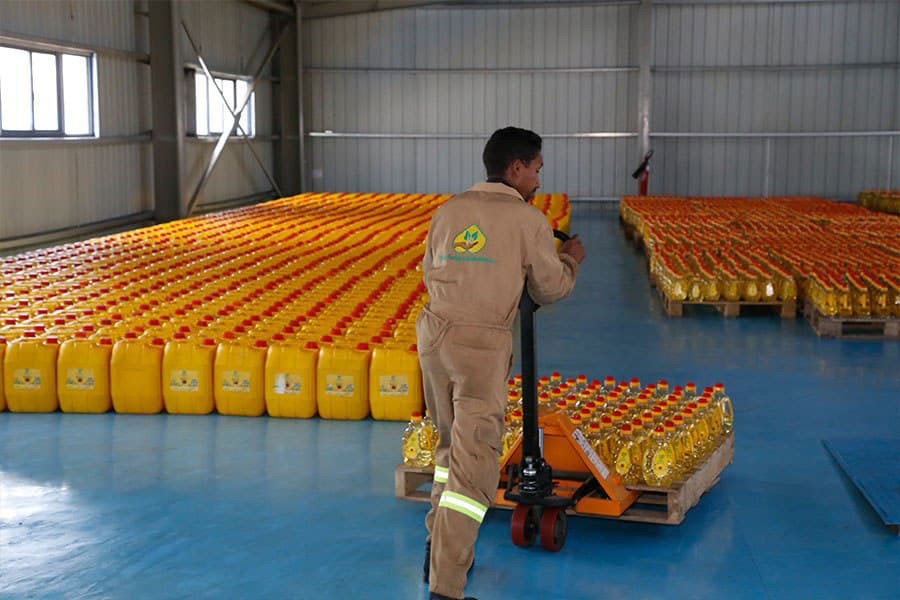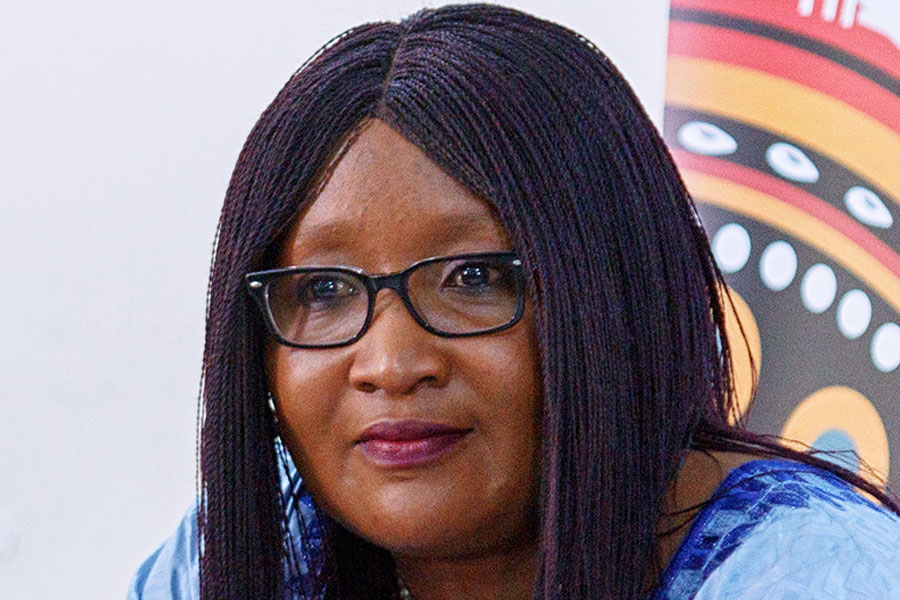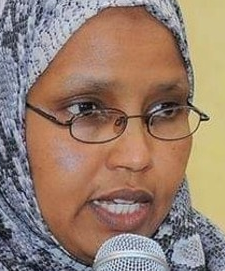
Commentaries | Sep 06,2020
Q: It has been almost 35 years since the IPCC was born. How has your understanding of climate change over the past few decades evolved? What are the most significant findings that have shaped your current position?
Jean-Pascal van Yspersele: One of the key questions IPCC had to address in the beginning was the proportion of climate change due to human activities versus natural factors. A suspicion early on that human factors played an increasingly important role. The first report stated at least one more decade will be needed to see the mark of human activities in climate evolution. Actually, it did not take a decade because the second IPCC report in 1995 already showed that the after-data analysis techniques had evolved. The proportion of evidence suggested a discernible influence of human activities on global climate.
Global warming since 1950 has been due to human activities through the release of greenhouse gases, as certainly supported by reports from 2001 through to 2013. The latest report for the working group dealing with climate science in 2021 has stopped using numbers, unequivocal that the warming since the mid-20th century is due to human activities. With every IPCC report, things became clearer.
When it was declared that it was likely, and 'likely' in the IPCC language means two chances out of three. I played a small role in adopting that sentence at my first IPCC meeting in November 1995 in Madrid.
Q: Has a simultaneous evolution also occurred in understanding climate change's impacts?
Understanding of climatic changes' impacts is much clearer than three decades ago. The sea level rise is a very critical factor that is better understood, especially the numbers that are given now for the rising sea level. Since the stability of the big ice sheets in Antarctica and Greenland is threatened by the warming, if a big chunk of those ice sheets breaks down and moves to the ocean, the sea level rise could reach two meters by the end of this century, which is a lot. For all coastal regions, this would mean flooding, even in cities close by.
The other aspect is climate change's impacts on extreme events, not changes in the frequency of extreme events like a cyclone but intensity are increasing- considerably the intensity of the cyclones. The intensity of rain is also paradoxical because you could have more droughts and, at the same time, have floods from the heavy rains when they hit due to increased precipitation.
Q: What do you believe are the most urgent and pressing challenges humanity faces in addressing climate change?
The need to act as quickly as possible in adaptation measures to reduce the severity of the damage is clear. Increasing everything, which raises the resilience either of agriculture or infrastructure or the health system, whatever is good in that respect. Adaptation is very important, but you cannot adapt to everything. Therefore, we must limit the intensity of global warming by working on mitigation measures because failure would cause the temperature to go higher than 1.5 degrees C above the preindustrial period, which means that adaptation would be much more difficult, challenging or sometimes impossible.
Q: Are there still limitations to the climate models? How do certain uncertainties affect the ability to predict and respond to the impacts of climate change?
You know a model is a representation of reality which is not perfect. But the quality of climate models has significantly improved over the past three decades, partly because more data is coming from satellites, particularly because computer power is much higher today and climate models consume a lot of power to make their computations.
But even now, climate models are not perfect since there are uncertainties about the evolution of climate. It should not be an excuse not to act; if you wait until you have all the details, you will probably experience the damage first.
Q: Where do you see the failure in communicating the risks and potential consequences of climate change to the general public, considering that there is some gap between various levels of scientific understanding and a certain degree of scepticism within elements of society?
The main challenge in communicating climate change is that much of it relates to a relatively distant future. Understanding the long-term consequences does not always happen easily. People have many concerns today about feeding their families, paying their bills, and attending school. To think and take seriously something that will happen in the future is quite difficult.
It is not only a question of the quality of communication but also the relatively long-term issue at hand. Most members of society do not have much appetite for dealing with long-term issues because there are so many short-term challenges to handle.
Q: Can you discuss the role of global economic and political systems in either exacerbating or mitigating climate in a bid to foster a more sustainable global society?
We are the only habitable planet in the solar system with wonderful resources. All the others are either too cold or too warm. We have the planet's surface, the flowers, the trees, the animals, and the agricultural products we use for food, and it is our common home for 8 billion people today.
This is clearly a global challenge; no individual country will solve the climate change issue alone. With the principle of common but differentiated responsibilities, it is very clear that developed countries, over time, have emitted much more greenhouse gases than developing countries. At the end of the day, we all need to care about our capacity. We have to take care of our common home.
One of the key difficulties is that it requires changing so many things now and in the coming years for benefits that will to a large extent, only be visible in a few decades. This requires political leaders with a vision of the future and our common interests, even with different responsibilities.
Of course, developed countries need to do much more, including funding. But not all leaders have that vision about the importance of keeping the planet habitable for everybody.
Q: How important is technology in battling climate change? Are there any specific technological developments that you find very promising?
The evolution of technology around renewable energy is probably one of the most positive evolutions of the past two decades. The costs of both solar and wind energy have dropped significantly to the point that in many parts of the world, it is cheaper than investing in fossil fuel power capacity. The good news is that those technologies have advanced competitively because it is intrinsically better for climates to use renewable energy rather than fossil fuel, making things easier in the coming years.
I visited the UNDP project Southeast of Addis, where a pump extracted water from 100 meters deep, fed by solar panels. Being a single pump, it is cost-effective, works very well, and many of them can irrigate 50 hectares of weeds in an area where nothing was growing most of the year at least.
Solar energy is really an opportunity now, an underutilized resource, particularly in tropical countries. The fact that the costs have decreased so much will help the adoption of those technologies in the coming years and decades.
Sometimes it is very old technologies that should be implemented a little more. In many developed countries, having better thermal insulation for the buildings would mean using much less energy for heating during winter to keep the temperature comfortable. With better insulation, you can have buildings requiring very little heating system or have the little heating you need coming from elsewhere and fossil fuels that are becoming increasingly possible.
Plenty of technology options are just waiting to be implemented. In many developing countries, funding is obviously something which needs to be delivered in the climate negotiations on how first to satisfy the promise made in 2009 in Copenhagen of 100 billion dollars yearly by 2020.
If I were to become the chair of the IPCC, I would relay not only the assessed knowledge about the science of climate change but also the diagnosis of the gaps in funding, which are very clearly presented in the IPCC reports.
Q: Specifically in terms of developing countries, how do you think the need for economic development and the imperative to protect the environment could be balanced as the developing world predominantly relied on fossil fuels for its development?
We have to find ways to reconcile both. Now, we know about possibilities that did not exist when the developed countries based their development on coal, oil and gas. At that time, you had no solar panels or windmills. What is clear is that development is needed, and also energy is required for the development. Hydroelectricity is also very important, so developing countries have the opportunity to leapfrog from those steps instead of reproducing developed countries' patterns in terms of fossil fuel usage.
Q: What do you think are some of the most effective strategies for adapting to the impacts of climate change, especially in terms of infrastructure and social systems could you indicate some consequences of climate change on global food and water security as well as potential solutions to these changes?
One of the key recommendations that the IPCC makes in its report is to stop reasoning about climate change in terms of silos. Looking at one particular problem on Monday, biodiversity on Tuesday, water access on Wednesday and fighting poverty on Thursday. On the contrary, this is why I always wear the logo of the 17 Sustainable development goals, which the UN General Assembly adopted in 2015—combining goal 13, climate action, and goal number one, eliminating poverty.
If you have a holistic approach, realise there are ways to attack different problems together by promoting what the IPCC calls climate-resilient development, a model of development that combines the need for development and increased resilience, increased adaptation and the need to protect against the shocks of climate change. When there is as much adaptation and resilience as possible in every sector, whether it is water provision, agriculture infrastructure, or health systems, you can take measures to increase resilience by having an intention. That is why it is so important not to be in silos; pay attention to the emissions of greenhouse gases associated with what you are doing.
Let us take a very simple example,
You can adapt to heat waves and to the dangers of extreme heat, which will become more important as the climate is warming, by saying, we will install air conditioning everywhere and switch it on. Simple, but if you do that and do not look at other ways to protect people from the effect of extreme heat. You will actually aggravate the problem because you will have significant greenhouse gas emissions associated with the energy provision needed to feed those air conditioning.
If you do not look closely, you can do something good for biodiversity and the protection of nature but fail to do good for climate change and ecosystems.
Q: In terms of achieving this course, how essential is international cooperation and addressing climate change, and what do you think are good strategies for successful climate change agreements?
The IPCC is only a scientific advisor on the basis of assessment of the scientific literature made in the most comprehensive and inclusive way; not in charge of solving the problem or taking measures. IPCC has written vastly on the vitality of International cooperation since the problem is global. For example, One tonne of CO2 emitted in Addis Abeba or New York has the same effect on climate no matter which emits more.
We all need to participate fully in our capacities in an effort to protect the global climate system.
Q: Do you believe that advanced economies must compensate developing countries for the loss and damage with regards to climate change, and are there potential formulas or mechanisms for such a compensation mechanism you would indicate?
The issue was diligently discussed over several COPs; In Glasgow, at COP26 and then made an agenda item at COP27. The fund was created, but now it is a matter of filling it.
I am happy to state that I advised the Belgian Minister in charge of one of the regions in Belgium, present in Glasgow, to contribute to that fund even before it existed. When Scotland announced its contribution first, Wallonia, a region of Belgium, was the second in the world to contribute. I strongly believe the amount will increase when the federal government of Ethiopia also donates.
I firmly think that the fund needs to be filled because, unfortunately, too little adaptation and mitigation have occurred thus far; hence, we see that losses and damages happening everywhere are increasing almost every day.
Q: Considering your early fascination with astronomy, have any of the new findings by the recently released James Webb Telescope caught your attention both in terms of preserving life on another planet and the general implications of the findings from the telescope?
It is absolutely fantastic to see so far away with technologies which are refined now and to allow visibility of stars and galaxies which are billion light years away. This means that the human mind is capable of very complicated and extraordinary feats. When you think about it, isn't it outstanding to send to space devices which are resistant to space conditions, extreme cold and heat and transmit quality information to us? The fact that humans can do that gives a sense of hope, especially with the development of technology that can mitigate impacts fewer. One gadget can be very elaborate and do very specific things while in space but integrating global efforts to address the issue among several aspects is very challenging.
Still, climate measures need to be taken everywhere around the planet in every sector by everyone. There is scalability, that is, the spread of technologies and changes in behaviour, which must be well spread out.
It gives me a sense of humility every time I watch the sky without any instruments or the images coming from this telescope or my telescope because I have my own telescope you know, we are one speck in the solar system, which is one dot in our galaxy.
In conclusion, let us not dream about going to another planet to colonize it. We should take care of the one we have in the best manner while wondering about the universe and what the images from the telescope are fine but let us make sure we take care of our home, here and now.
PUBLISHED ON
Apr 15,2023 [ VOL
24 , NO
1198]

Commentaries | Sep 06,2020

Commentaries | Nov 21,2020

Life Matters | Jul 13,2019

Fortune News | Oct 18,2025

Fortune News | Mar 05,2022

Commentaries | Sep 27,2020

Viewpoints | Sep 14,2024

Radar | May 15,2021

Exclusive Interviews | Aug 19,2023

Verbatim | Mar 09,2019

Dec 22 , 2024 . By TIZITA SHEWAFERAW
Charged with transforming colossal state-owned enterprises into modern and competitiv...

Aug 18 , 2024 . By AKSAH ITALO
Although predictable Yonas Zerihun's job in the ride-hailing service is not immune to...

Jul 28 , 2024 . By TIZITA SHEWAFERAW
Unhabitual, perhaps too many, Samuel Gebreyohannes, 38, used to occasionally enjoy a couple of beers at breakfast. However, he recently swit...

Jul 13 , 2024 . By AKSAH ITALO
Investors who rely on tractors, trucks, and field vehicles for commuting, transporting commodities, and f...

Oct 25 , 2025
The regulatory machinery is on overdrive. In only two years, no fewer than 35 new pro...

Oct 18 , 2025
The political establishment, notably the ruling party and its top brass, has become p...

Oct 11 , 2025
Ladislas Farago, a roving Associated Press (AP) correspondent, arrived in Ethiopia in...

Oct 4 , 2025
Eyob Tekalegn (PhD) had been in the Governor's chair for only weeks when, on Septembe...